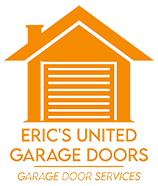Hurricane-rated garage doors are essential in Fort Lauderdale, where seasonal storms and high winds place unique demands on homes. A properly rated door helps protect the building envelope, reduces the chance of wind-driven damage, and satisfies local code requirements. Choosing the right product and ensuring it is installed to specification are equally important. The process involves selecting the proper wind load package, verifying structural attachment points, and documenting approvals. For many homeowners, partnering with a local pro experienced in garage door installation is the most reliable way to meet performance and inspection goals.
What Makes a Garage Door Hurricane-Rated?
Hurricane-rated doors are engineered to resist specific wind pressures and, in some configurations, impact from windborne debris. These doors typically include reinforced struts, upgraded track and brackets, heavier gauge hardware, and precise fastening patterns. The assembly—door, track, fasteners—works as a system to resist loads and remain operational after the storm.
Product approvals and documentation are key. Your installer should provide the appropriate paperwork demonstrating the door’s compliance for your address and exposure category. This documentation supports permitting and inspection, reducing the chance of delays.
Fort Lauderdale Considerations
Fort Lauderdale’s coastal environment adds challenges beyond wind. Salt air accelerates corrosion, UV exposure affects finishes, and heavy rain can find its way past worn seals. Select materials and hardware designed to handle these stressors. A door that meets code and resists corrosion will serve you better over time.
Critical Components of a Hurricane-Rated System
- Reinforced door sections and struts to maintain structural integrity under load.
- Upgraded track, brackets, and fasteners specified for the assembly’s wind rating.
- Proper anchoring to the jambs and framing, often with additional reinforcement.
- Balanced springs selected for the door’s weight and expected usage cycles.
- Weather seals that help keep water and debris out under severe conditions.
Permitting, Product Approvals, and Inspections
Compliance is as much about paperwork as it is about hardware. Work with an installer who can produce product approvals, engineering details, and installation instructions. This package should align with your home’s dimensions and exposure. A coordinated submission speeds permitting, and careful adherence to the specifications helps pass inspection the first time.
Installation Best Practices
Correct installation is essential for performance. Even the best door can underperform if tracks are not aligned or fasteners are not installed as specified. Professional crews confirm the opening, select the correct track radius and configuration, and anchor hardware according to the engineered plan. Springs are set to balance the door, which supports both safety and quiet operation.
Opener attachments must be reinforced appropriately. A reinforcement plate on the top section disperses the pulling force, protecting the panel during normal operation and under load. Photo-eyes are aligned, force settings are adjusted, and the door’s reversal response is verified to protect people and property.
Mid-Project Checkpoints
Good teams communicate frequently. They will confirm the wind rating, review attachment points, and verify that the installation follows the paperwork on file. This is also a good stage to finalize opener features and accessories. During this mid-project review, many homeowners confirm timelines and ensure that the plan for garage door installation aligns with inspection schedules and any HOA requirements.
Doors With and Without Windows
Hurricane-rated doors are available with solid panels or with impact-rated windows. Windows add natural light and curb appeal, but they must meet the required rating. If privacy is a concern, consider higher placement or textured glass that diffuses visibility while admitting daylight.
Maintenance for Coastal Longevity
After installation, maintenance protects your investment. Inspect hardware for corrosion, clean and lubricate moving parts as recommended, and replace weatherstripping when worn. If the door becomes noisy or imbalanced, schedule service to correct it promptly. Regular attention keeps the system ready long after storm season.
Common Mistakes to Avoid
- Installing a door without verifying the wind rating for your address.
- Using non-rated hardware or substituting fasteners not specified in the approvals.
- Skipping the reinforcement plate at the opener attachment.
- Ignoring track alignment or failing to anchor properly to the structure.
FAQ
Q: Do all homes in Fort Lauderdale require hurricane-rated doors?
A: Many areas require specific wind load ratings. Your installer can confirm the exact requirements for your location and provide corresponding product approvals.
Q: Can I add impact windows to a rated door?
A: Yes, if the window assemblies are approved for the door system and meet the rating. Your installer can present compatible options.
Q: How often should I service a hurricane-rated door?
A: Annual professional checkups are a good baseline. Coastal conditions may warrant more frequent inspections, especially after storm events.
Q: Will a rated door be louder or heavier?
A: Reinforced components may add weight, but proper springs and alignment keep operation smooth and quiet when installed correctly.
Q: How long does installation take?
A: Many projects are completed in a day once materials and permits are ready, though complexity and inspections can affect timing.
Q: What materials resist corrosion best?
A: Galvanized and coated steel, aluminum, and high-quality hardware designed for coastal environments perform well with routine care.
Q: Can I reuse my old opener?
A: If it is compatible with the new door’s weight and safety requirements, possibly. Your installer can advise and adjust settings.
Q: What should I do before installation day?
A: Clear access around the garage, move vehicles and stored items, and discuss power outlets, smart features, and inspection timing.
Strengthen Your Home Before the Next Storm
A hurricane-rated door installed to specification is one of the smartest upgrades you can make in Fort Lauderdale. It helps safeguard your home, satisfies code requirements, and provides peace of mind during storm season. If you are ready to move forward, schedule professional garage door installation with a local team that will coordinate approvals, install meticulously, and support you with maintenance guidance year-round.

